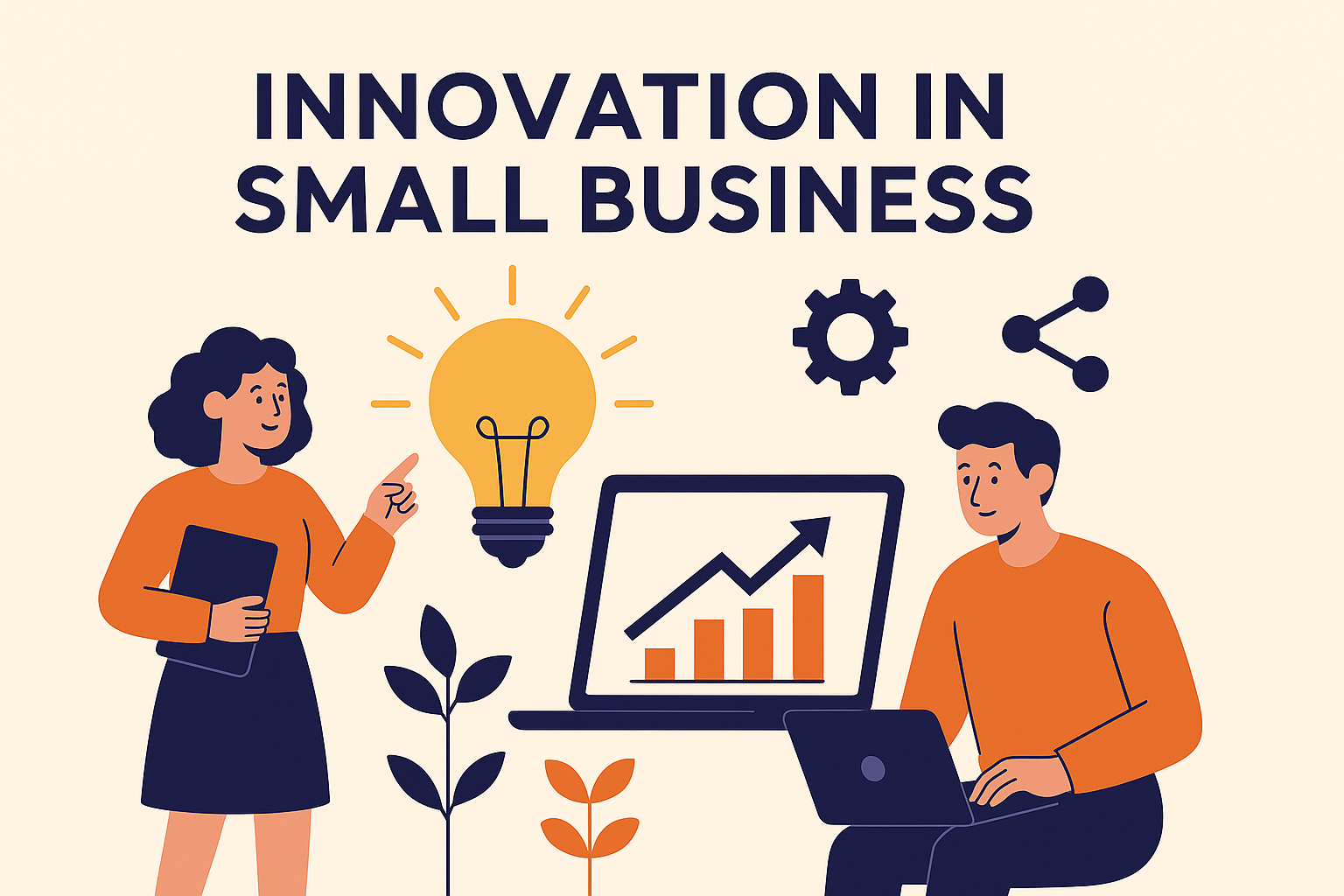
I used to think innovation had one clear definition — inventing something brand new that never existed before. That’s what I believed made businesses truly successful, like when the iPhone came out. But reading Michael E. Gerber’s classic book The E-Myth Revisited totally shifted my perspective.
Turns out, innovation doesn’t have to be groundbreaking to be powerful. Curious what that really means? Keep reading.
In The E-Myth Revisited by Michael E. Gerber, innovation in business is seen as essential but misunderstood. The book doesn’t promote innovation as flashy or groundbreaking invention. Instead, it defines innovation as:
Simply finding a better way of doing something you already do.
Michael presents some key opinions in the book that are interesting. Keep reading!
💡 4 Key Opinions About Innovation in the Book:
1- Innovation is systematized
Michael emphasizes that innovation should be built into business systems, not left to chance. It’s not about random creativity — it’s about consistently improving how things are done.
2- Small innovations matter most
Rather than big ideas, the book praises incremental improvements to processes, customer experience, or workflow. These "tiny refinements" are what build a scalable, replicable business.
3- Part of a trio: Innovation, Quantification, Orchestration
- Innovation: Find better ways.
- Quantification: Measure the results.
- Orchestration: Standardize what works best.
This trio helps transform a small business into a finely tuned machine.
4- Innovation serves the customer
Every innovation should enhance the customer experience or deliver more value. Innovation for its own sake, detached from the customer, is useless.
🧠 Michael's Practical Takeaway
You don’t need to be Jeff Bezos — you need to build systems where every employee, even the lowest-paid one, can follow and suggest small improvements. That’s real innovation in the E-Myth world.
And throughout the book, He emphasizes on the systems to implement it. Build the system, and the system will help you build your business.
Some practical Examples in the book
I found some practical example in the book about the innovations that a small business can make in their businesses:
🥧 1. The Pie Shop Example (All About Systems)
In one of the book's central stories, Michael coaches a pie shop owner named Sarah who is burning out from doing everything herself.
Innovation:
Instead of baking being an art done "her way" every time, Sarah learns to:
- Systematize recipes so others can replicate her pies consistently.
- Create a standardized training manual for staff.
- Use customer feedback to tweak layout, service, and packaging.
➡️ Impact: She goes from a stressed-out solo baker to owning a business that can operate and scale without her daily involvement.
💬 2. Changing Language to Shape Experience
Michael talks about how a small innovation like changing how employees speak to customers can alter perceptions.
Innovation:
Rather than saying “Can I help you?”, they say:
- “Have you ever been here before?”
- “Let me show you how it works.”
➡️ Impact: Creates a warmer, more guided experience — increasing customer trust and satisfaction.
🛠 3. Scripted Systems for Service
He gives examples from businesses like salons, repair shops, or boutiques where every part of the customer journey is scripted and repeatable, from the greeting to the thank-you note.
Innovation:
- Develop a customer service script.
- Automate or template repetitive tasks.
- Design store layout for optimal flow and comfort.
➡️ Impact: Reduced training time, better customer experience, and consistent quality.
Using Quantification to Fuel Innovation
Michael stresses that every innovation should be measured:
- If you change store hours, did sales increase?
- If you tweak the layout, did people stay longer?
This data-driven approach turns every innovation into a controlled experiment.
🧠 The Real Takeaway
Innovation is the work you do on your business, not in it.
It’s not about genius — it’s about designing a business that runs on thoughtful systems and evolves with constant small improvements.
Reading this book really cheered me up. Michael tells us you don't need to look for a unique idea always. You can have a very successful business doing something that your neighbour has done, but with some of "innovations on your business".
Do you agree? Let me know what you think.
Share this post
Subscribe to our newsletter